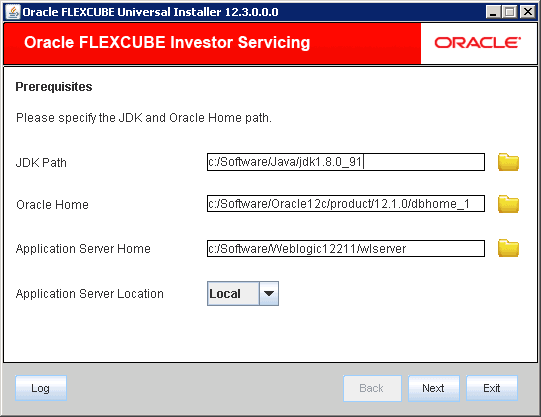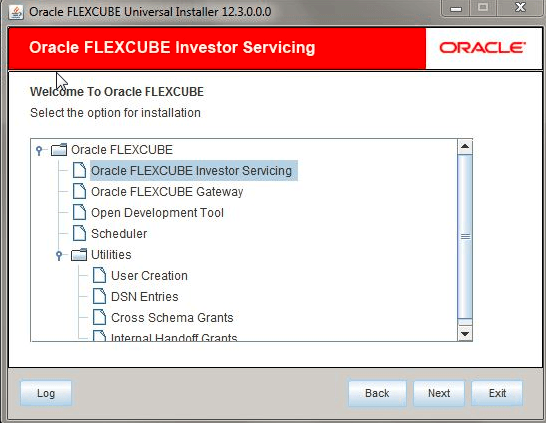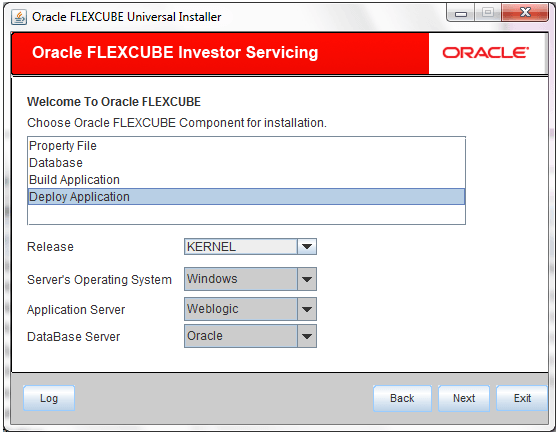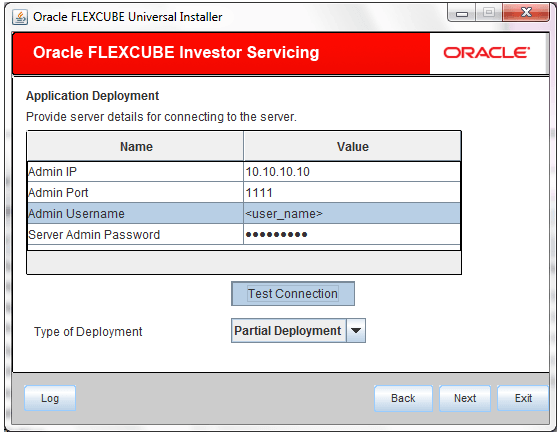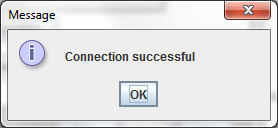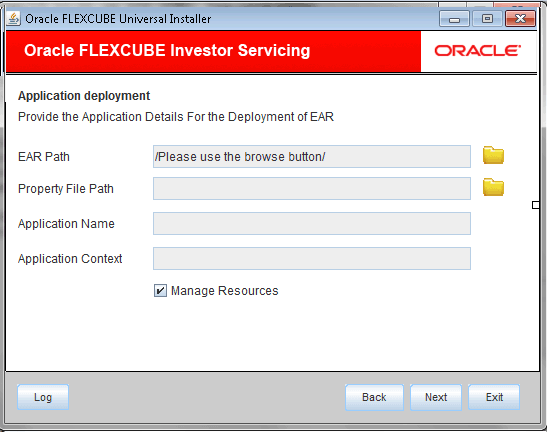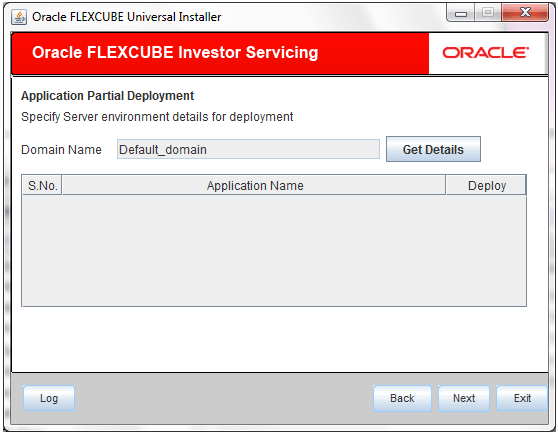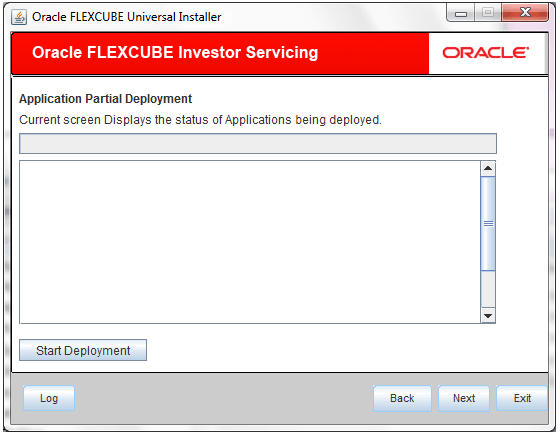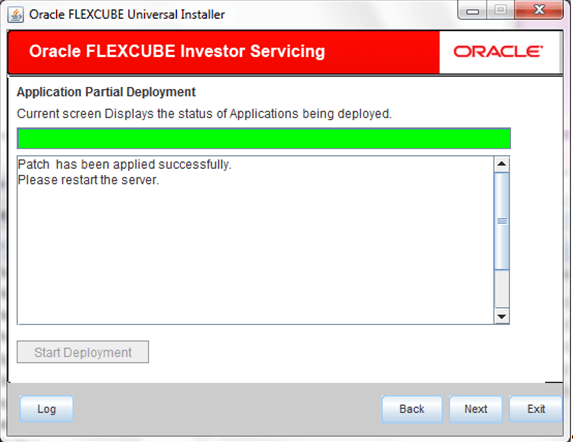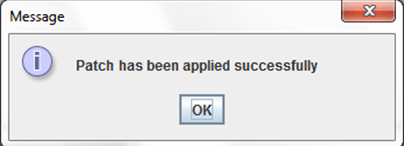1.2 FCIS Application Partial Deployment
This topic describes steps to install FCIS application into weblogic server in partial deployment mode.
- Launch Oracle FLEXCUBE Universal
Installer.The Oracle FLEXCUBE Universal Installer is displayed.
Figure 1-14 Oracle FLEXCUBE Universal Installer
- On Oracle FLEXCUBE Universal Installer
screen, enter the following details.Refer to the table for JDK and Oracle Home path.
Table 1-5 JDK and Oracle Home path
Field Description JDK Path Provide Home folder path of JDK1.8.
Oracle Home Provide home folder path of Oracle Client or Database.
Application Server Home Provide home folder path of Application Server.
Application Server Location Select location of the application server either local or remote.
- Click Next to select the option for installation.
- Select Oracle FLEXCUBE Investor
Servicing from the lists of
Oracle FLEXCUBE
options.The available options for installation are displayed.
- Click Next to choose Oracle FLEXCUBE component for installation.
- Select Deploy Application.The available options Property File, Database, Build Application, and Deploy Application are displayed.
Figure 1-16 Oracle FLEXCUBE Component for Installation in Partial Deployment
- Select the appropriate option from the Release drop-down.
- Choose the appropriate Server’s Operating System from the drop-down.
- Choose Weblogic from the Application Server drop-down.
- Select Oracle from the DataBase Server drop-down and click Next.
- Specify Server details to connect to the server and click
Next.Refer to the table for server details.
Table 1-6 Server details
Field Description Admin IP Provide host address of Admin server.
Admin Port Provide port number of Weblogic server.
Admin UserName Provide the appropriate Admin Username of the Weblogic Application server.
Server Admin Password Provide the appropriate Admin Password of the Weblogic Application server. Type of Deployment Choose Partial Deployment.
The following screen is displayed.Figure 1-17 Server Details for Partial Deployment
- 9. Click Test Connection to test the
connection with the Application server.On successful connection, the following message is displayed.
Figure 1-18 Information Message on Successful Connection
- Click Ok and click
Next in the installer.The following screen is displayed.
Figure 1-19 Application Details for Partial Deployment
- Specify Application details to deploy the EAR.Refer to the table for Application details.
Table 1-7 Application details
Field Description EAR Path Select the application EAR to be deployed using the browse button.
Note: The Application EAR path cannot be copied and pasted on to the text box, thereby demanding the use of the Browse button to select the EAR.
Property File Path Select the appropriate path to the external properties file.
If the properties file is internal to the application EAR, it would be fetched on selection of the EAR and will be in a non-editable state.
Application Name Selection of the EAR would fetch the Application Name and it will be in a non-editable state.
Application Context Selection of the EAR would fetch the Application Context and it will be in a non-editable state.
Manage Resources Manage Resources is disabled as resource creation has already done for full deployment.
- Click Next after the Application details are specified.
- Specify Server Environment details for deployment.The Domain Name shows the weblogic domain name.The following screen is displayed.
Figure 1-20 Server Environment Details for Partial Deployment
- On Server Environment details screen, click Get
Details button.The list of applications deployed on weblogic application server are displayed.
- Select the application to be patched from the lists of
Application Name
displayed.If no application is available, then partial deployment cannot be proceeded.
- Click Next after the server environment details are specified.
- Click Start Deployment to start the
process of partial/patch deployment.The following screen is displayed.
Figure 1-21 Application Deployment Status for Partial Deployment
- You can view the status of Applications being deployed.The following screen displays the status of Applications being deployed.
Figure 1-22 Start Application Partial Deployment
- You can view the information message on successful partial
deployment and click Ok in the
Message window.The following Message window is displayed.
Figure 1-23 Information Message on Successful Partial Deployment
- Restart the server for changes pertaining to the deployed patch to reflect
Parent topic: FCIS Application Deployment
